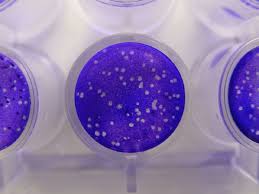Abstract
The lack of normal B-cell differentiation in patients with acquired or congenital antibody deficiency may reflect abnormalities inherent in cells of B-lymphoid lineage or may involve abnormalities of regulatory (suppressor) cells. Circulating suppressor T cells, which interfere with IgM secretion in a plaque-forming-cell assay,
have been found in 60 per cent of these patients, but their role in the pathogenesis of the disease is unclear. We observed the development of abnormal suppressor T cells and hypogammaglobulinemia in a patient receiving phenytoin (diphenylhydantoin). After the drug was withdrawn, the suppressor activity disappeared and immunoglobulin production resumed. This transient, drug-dependent expression of both suppressor-cell activity and antibody deficiency strengthens the argument that both events may be causally related.
Dosch HM, Jason J, Gelfand EW
N. Engl. J. Med. 1982 Feb;306(7):406-9
PMID: 6460185
doschNEJM-306-1982